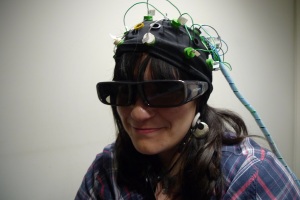 Here’s an exclusive feature that I wrote for Pocket-lint.com when the Blu-ray Disc Association invited me to take part in some Mindlab testing.
Here’s an exclusive feature that I wrote for Pocket-lint.com when the Blu-ray Disc Association invited me to take part in some Mindlab testing.
People are 12 per cent more attentive when watching Blu-ray 3D compared to a conventional Blu-ray disc and 29 per cent more attentive when that same 3D experience is up against a plain old DVD. So says recent research commissioned by the Blu-ray Disc Association (BDA). The results of the study, which is good news for 3D evangelists, also showed that people are 7 per cent more engaged when watching Blu-rays in 3D as well.
But how were these results collected and just how believable are they? Pocket-lint was invited to take an exclusive peek at the testing procedure and also to take part. Read on to find out what happened.
The tests were carried out by the Mindlab International team, based at the Sussex Innovation Centre in Brighton which is essentially an incubation home for tech companies. Mindlab is a neuromarketing company founded by company chairman, director of research and “father of neuromarketing” Dr David Lewis-Hodgson in the early 90s, under the slightly alarming title of StressWatch. Thankfully in 2005, the name was changed to the infinitely more friendly sounding MindLab.
On arrival at Mindlab HQ, we had the whole test process explained to us by Mindlab’s MD and director of operations, Duncan Smith, and his friendly team of data analysts and researchers. The technology used by Mindlab may look like something out of a science-fiction film, but it’s actually called EEG testing (or electroencephalography to give it its full title) which provides quantifiable data on brain activity that’s combined with EDA (electro-derman activity) readings taken from small electrodes on the hand which measure stress indicators such as sweat. The point behind all this is to understand responses to subconscious influences, in this case a selection of film clips.

